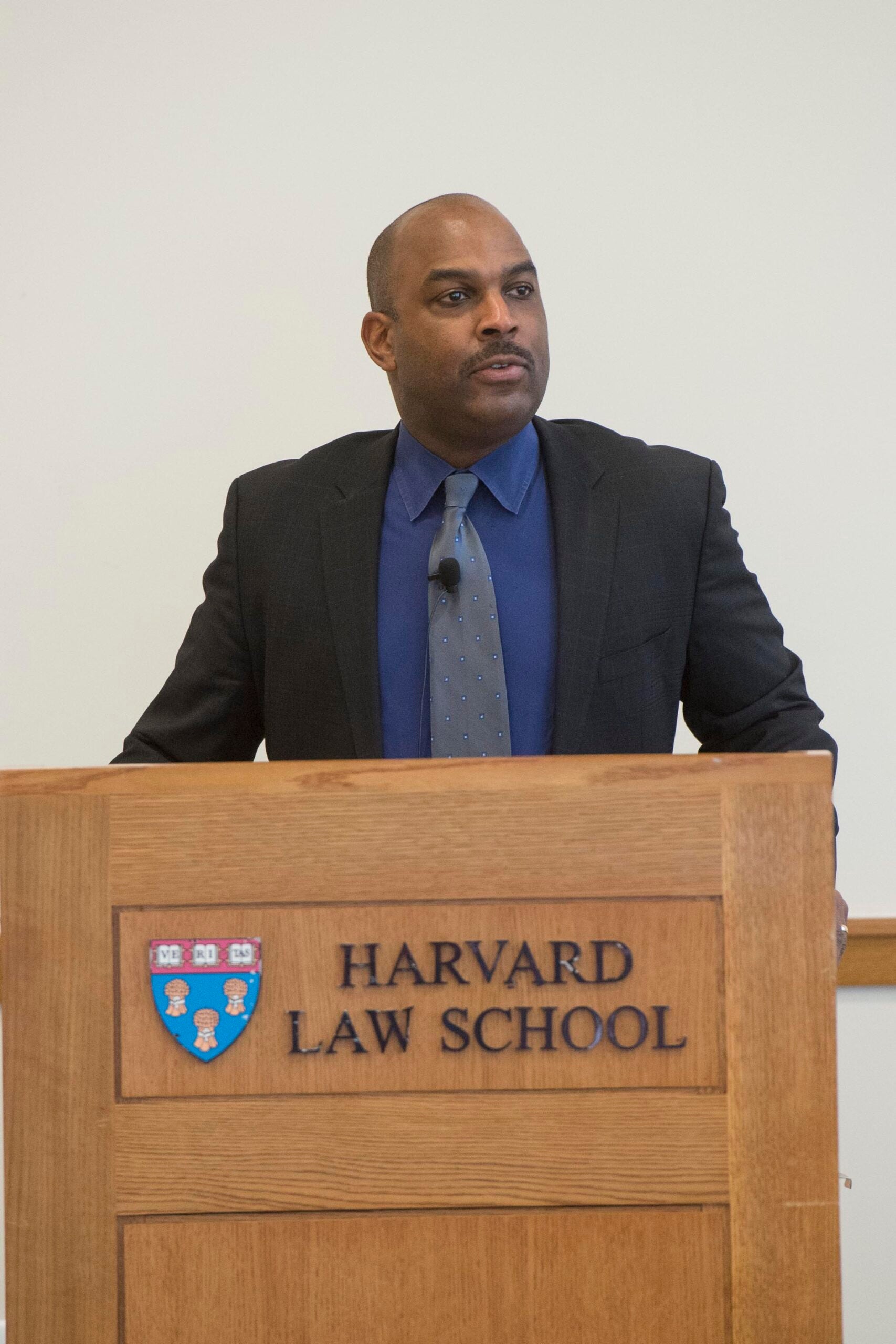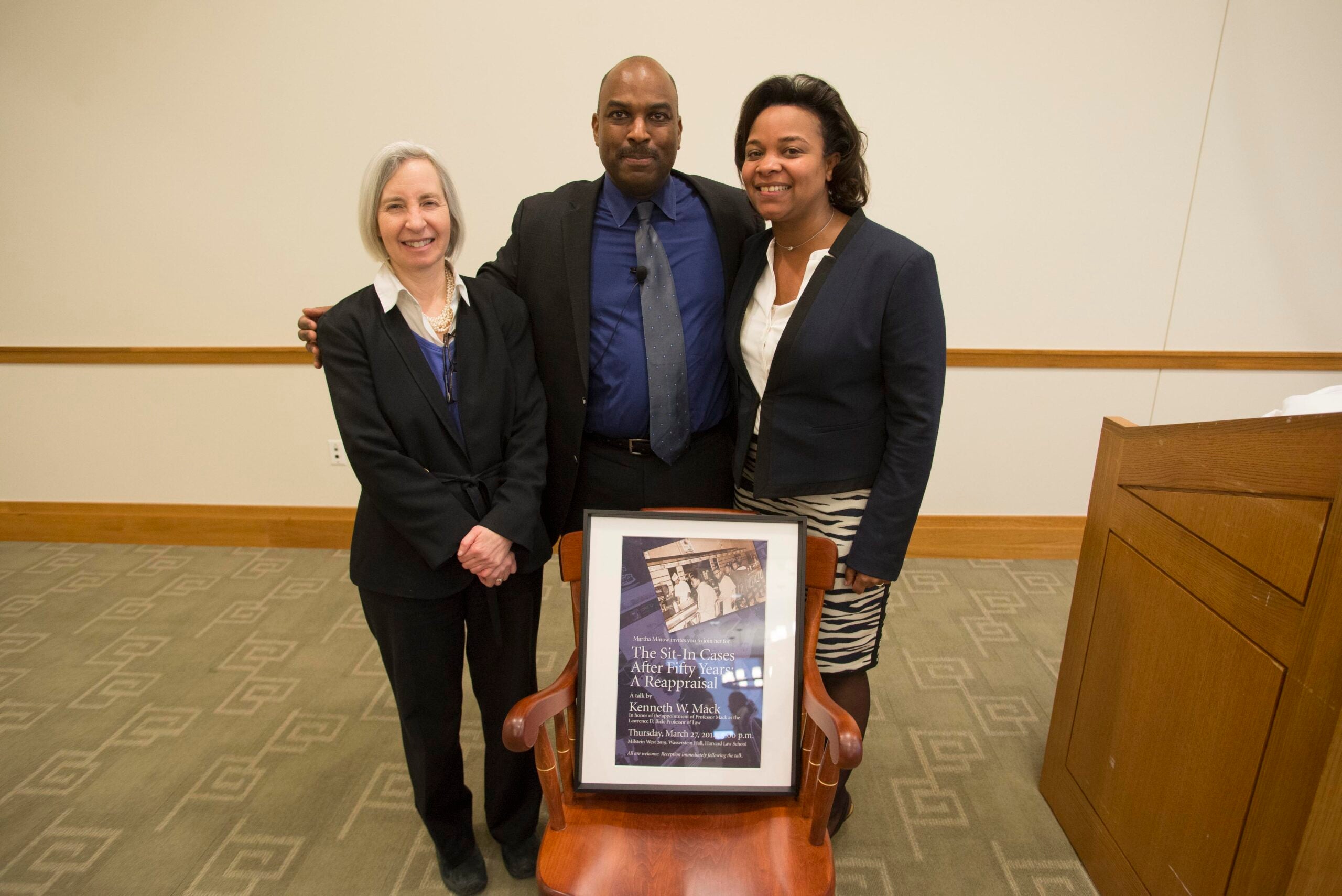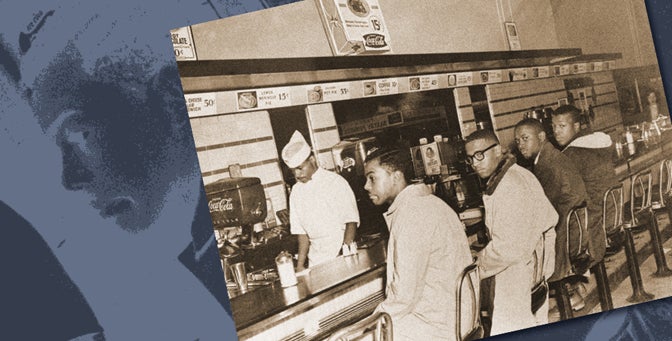Harvard Law School Professor Kenneth Mack ‘91 delivered a talk, “The Sit-In Cases After Fifty Years: A Reappraisal,” on the occasion of his appointment as the inaugural Lawrence Biele Professor of Law.
In his March 27 lecture, Mack, a leading scholar of the legal and constitutional history of American race relations, reflected on the legal history and legal issues surrounding the sit-in movement.

Introducing Mack before the lecture, Dean Martha Minow said: “Ken has contributed tremendously to our modern understanding of civil rights history, and to our understanding of the civil rights movement’s countless, reverberating effects on American race relations, politics and social justice.”
Mack noted that the sit-in protestors, viewed 50 years ago as lawbreakers, have come to be viewed as “powerful exemplars of a long-standing tradition of breaking unjust laws.” In his lecture, Mack argued that a more focused look at history, and specifically legal arguments in the earliest civil rights cases, demonstrate that areas of law that defined the sit-in protestors’ actions as illegal were ambiguous.
Mack is the inaugural Lawrence Biele Professor of Law at Harvard University, and co-faculty leader of the Harvard Law School Program on Law and History. His scholarly work focuses on the relationship between racial-professional identity and civil rights lawyering in the early twentieth century United States.
He is the co-editor of “The New Black: What Has Changed – And What Has Not – With Race in America” (New Press, 2013) and author of “Representing the Race: The Creation of the Civil Rights Lawyer” (Harvard University Press, 2012), which was selected as a Top 50 Non-Fiction Book of the Year by the Washington Post. He has written many opinion pieces for some of the most prominent publications in the country, and during the 2008 and 2012 Presidential elections, he offered commentary on a number of national television and print media outlets.

Mack has taught at Harvard Law School since 2000. From 2002 to 2006, he was co-director of the Harvard Law School Legal History Colloquium. Mack also spent 2009-2010 as a visiting professor at Georgetown Law.
He earned a B.S. in Electrical Engineering from Drexel University, and began his professional career as an electrical engineer at Bell Laboratories before turning to law, and history. He then went back to school to earn a J.D. from Harvard Law School, where he served as an executive editor of the Harvard Law Review (working with classmate and Law Review President Barack Obama ’91). He later studied history at Princeton University, earning a master’s degree in 1996 and a Ph.D. in 2005.
Prior to joining the faculty at Harvard Law School, he was a trial and appellate litigator at Covington & Burling in Washington, D.C. He also served as a clerk for Federal District Judge Robert L. Carter of the Southern District of New York. During the first national elections in post-apartheid South Africa, he served as co-area director of election monitoring for the United States and Canada.
In 2010, Mack also received an honorary doctorate of public service from the Harrisburg University of Science and Technology, in his hometown of Harrisburg, PA.
